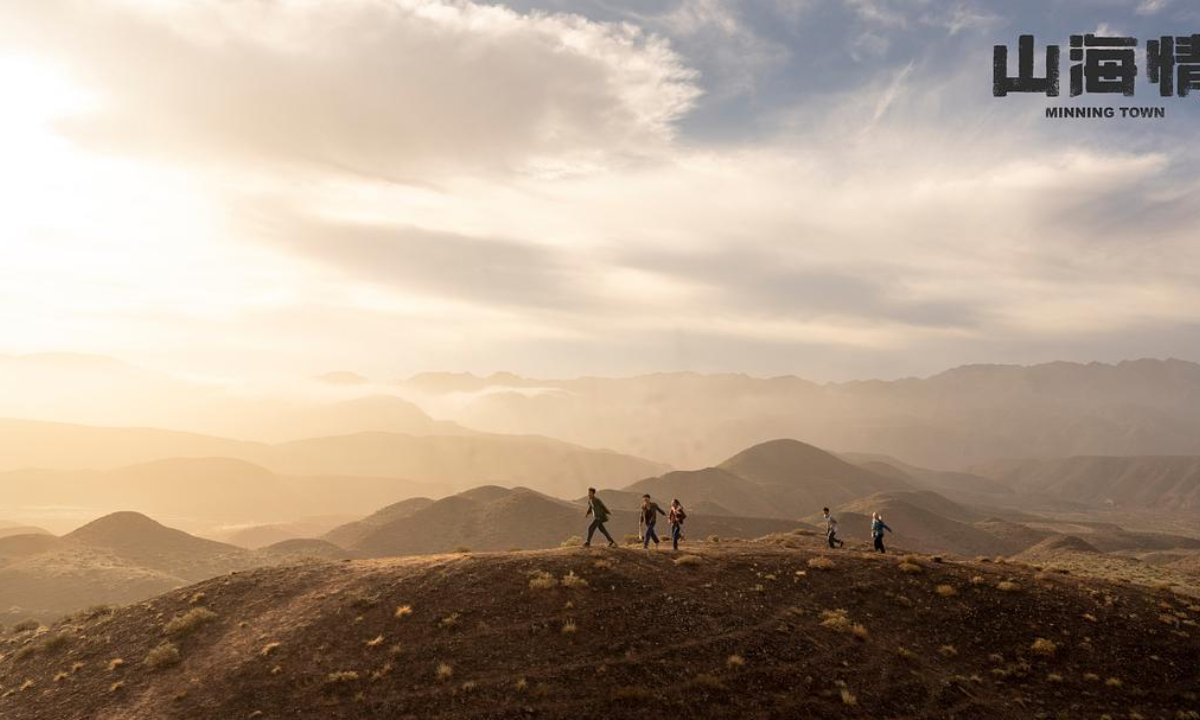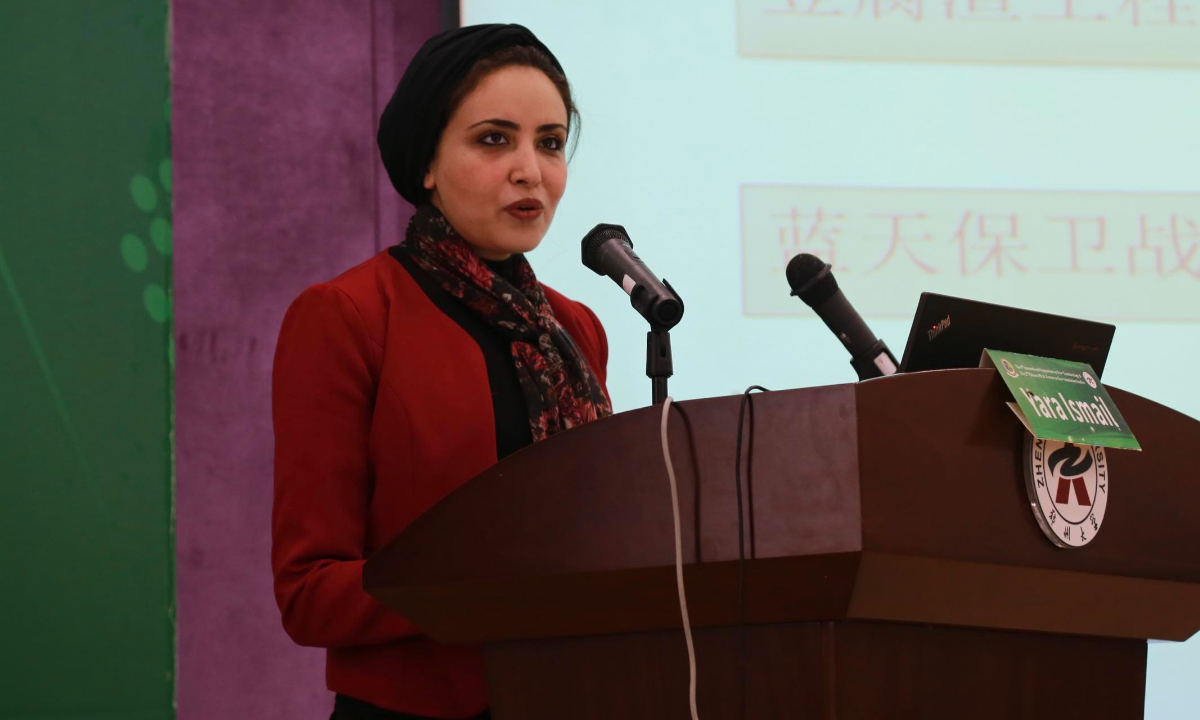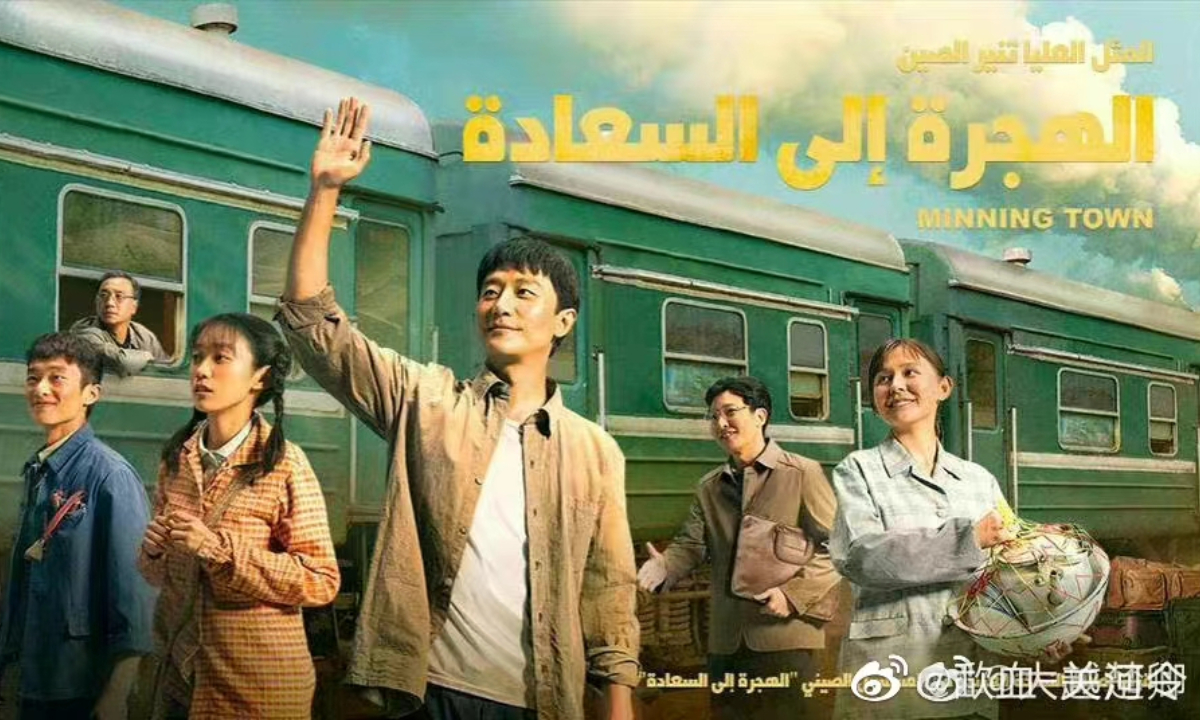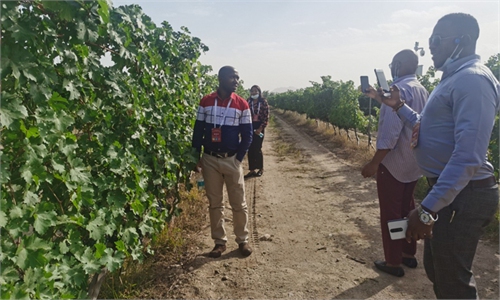ARTS / TV
Popular Chinese TV series bring positive life attitude and joy to Arab audiences

Promotional material for Minning Town Photo: Douban
After winning the hearts of millions of critics and casual viewers in China, a drama inspired by a real-life poverty alleviation project, Minning Town, began airing in Egypt on Monday with Arabic dubbing. The drama is expected to earn even more Arab audiences after it begins airing in Middle Eastern countries like Saudi Arabia, the United Arab Emirates and Sudan.
"It deeply moved me with its authenticity," Yara Ismail, the editor of the Arabic version and also a Chinese language lecturer at Cairo University, told the Global Times on Thursday.

Yara Ismail Photo: Courtesy of Ismail
"Quite different from those 'fast-food' TV series, it helps overseas people like me learn how China has led poor people to live a moderately prosperous life as well as feel the hardworking spirit of Chinese people to alleviate poverty."
Shared wisdom and kindness
One of China's most popular series in the past three years, Minning Town follows the trials and tribulations of villagers in the northwestern area of the Ningxia Hui Autonomous Region who were relocated from the countryside in the 1990s as part of a local poverty alleviation initiative. The entire village was moved several hundred kilometers north to a new location so residents could live a better life. With support and help from experts from Fujian Province, a relatively wealthy province in East China, villagers established their own businesses and finally won the war against poverty.
The new settlement was dubbed "Minning," a portmanteau of "Min," another name for Fujian, and "Ning" for Ningxia.
However, the Arabic version didn't use the English title Minning Town, because it was too "difficult for Arabs to understand the two strange places."
"They don't know what the economic status in China was like in the 1990s, and have no idea that Ningxia and Fujian would be so different back then," explains Ismail, who pitched the name Immigrating toward Happiness.
"Such titles are more positive and can fit the viewing habits and preferences of audiences in Arab countries and regions."
Ismail said she believes that the story in Minning Town can resonate with audiences in Egypt and other Arab countries, allowing them to learn "how great the Chinese people are."
"Before watching the series, nobody knew how difficult and poor the Chinese countryside was at that time. Compared with how prosperous and strong China is now, what they achieved was hard-won," she added.
Professor Ling Yinong, a Fujian expert, moved Ismail the most, because he helped villagers not only grow mushrooms, but also solve the problems of how to sell them.
"Such characters are welcomed, but so is the wisdom contained in the old sayings in the series like 'Teach a man to fish, rather than give him a fish." These are appreciated by Arabs," she said.
Window into China
Before Minning Town, a number of popular Chinese TV series had made their way into the Arab world, building a solid foundation for people-to-people exchanges between China and Arab countries.

Arabic poster for Minning Town Photo: Sina Weibo
Zhang Yiwu, a professor of Peking University, told the Global Times on Thursday that films and TV programs are one of the best channels to allow the world to better understand China and see Chinese stories.
TV shows such as Minning Town that narrate Chinese stories about the country's fight against poverty can allow the rest of the world to better understand the present situation in China and the changes that have taken place in society in recent years, Zhang noted.
"Film and TV dramas are becoming a powerful carrier for conveying Chinese culture and explaining Chinese-style modernization to the world, gradually forming an effective language for communicating cultural mutual learning and dialogue among civilizations. They can arouse the emotional resonance and cultural identity of people in different countries with abundant emotional expression,” Zhang Chaoyi, the dean of Institute for International Communication of Chinese Culture at Beijing Foreign Studies University, told the Global Times on Thursday.
Beautiful Life, which aired in Tunis in 2019, and Ode to Joy, showing the struggles of four small-town girls who head to Shanghai in search of work, also became hits in Egypt after airing early in 2019. Meanwhile, A Little Reunion, centered around family ties and children's education, started airing in Dubai earlier in 2022.
These hit TV series have gained more and more young audiences in the region who hope to learn about a comprehensive and real China from Chinese film and TV productions.
"These works full of positive energy can win the favor of Arabs, especially young people. What they want to see are the kind of shows that will give you the motivation and desire to move forward," said Ismail, who began to learn the Chinese language after taking the college entrance examination.
Her father persuaded her to learn Chinese. He said that China has become the second largest economy in the world, and learning Chinese has a bright future.
"At that time, I thought my father was very discerning and what he said made sense, so I made up my mind to learn Chinese, which was a wise and correct choice."
In a letter replying to representatives of Chinese language learners in Saudi Arabia, Chinese President Xi Jinping called upon them to learn Chinese well and make new contributions to strengthening China-Saudi Arabia and China-Arab friendship.
Inspired by the letter, Ismail hopes that she can get more Arab people to understand Chinese culture and learn what China looks like today. Additionally, she also has high hopes for the upcoming China-Arab States Summit, to be held in Saudi Arabia.
"Saudi Arabia is my birthplace, and I have a feeling for that land."



